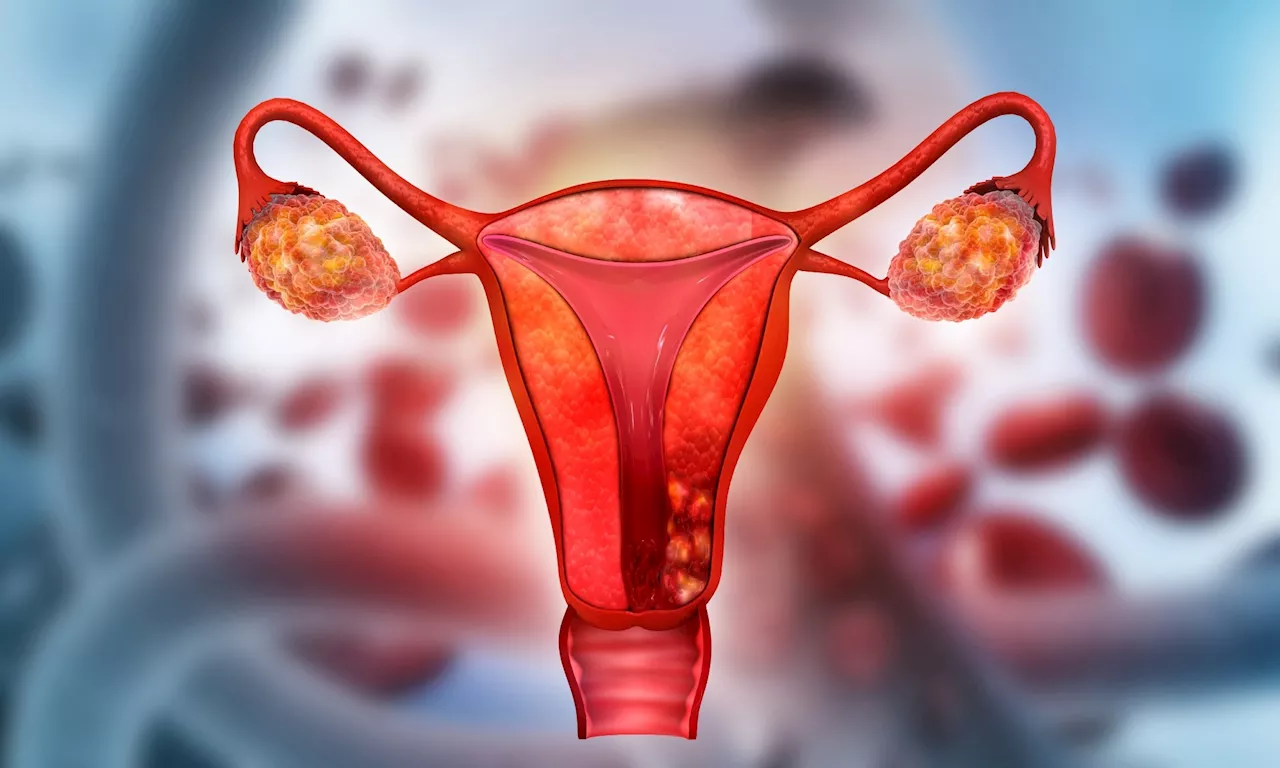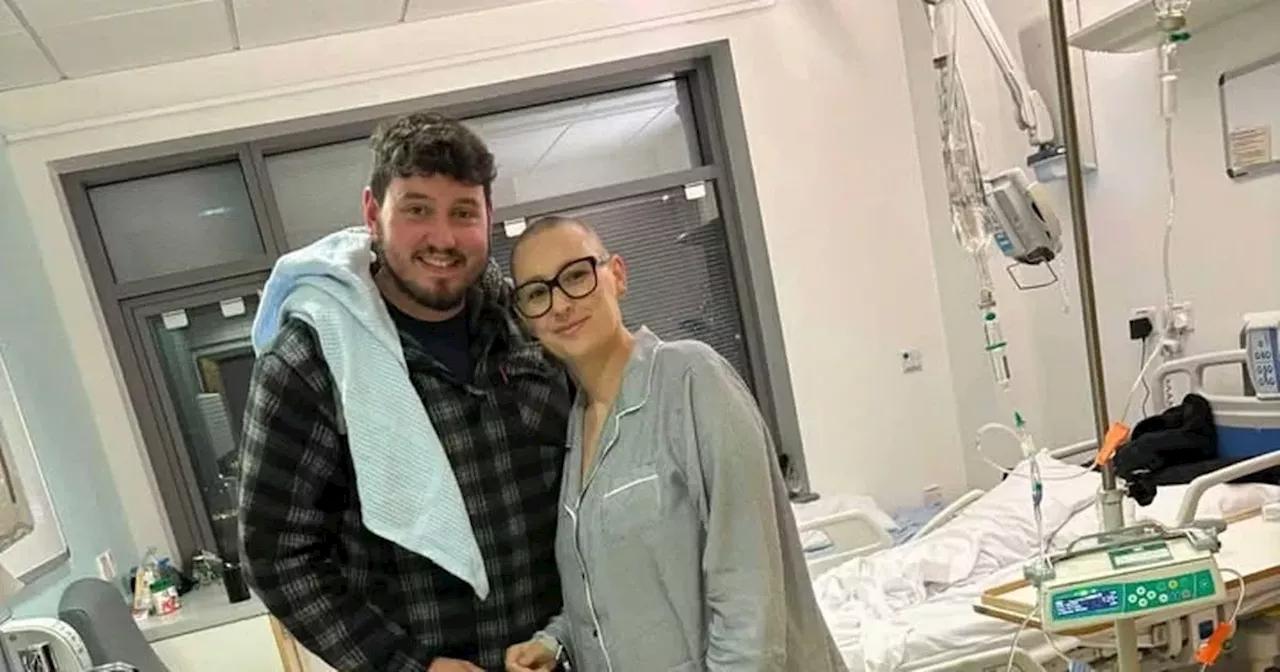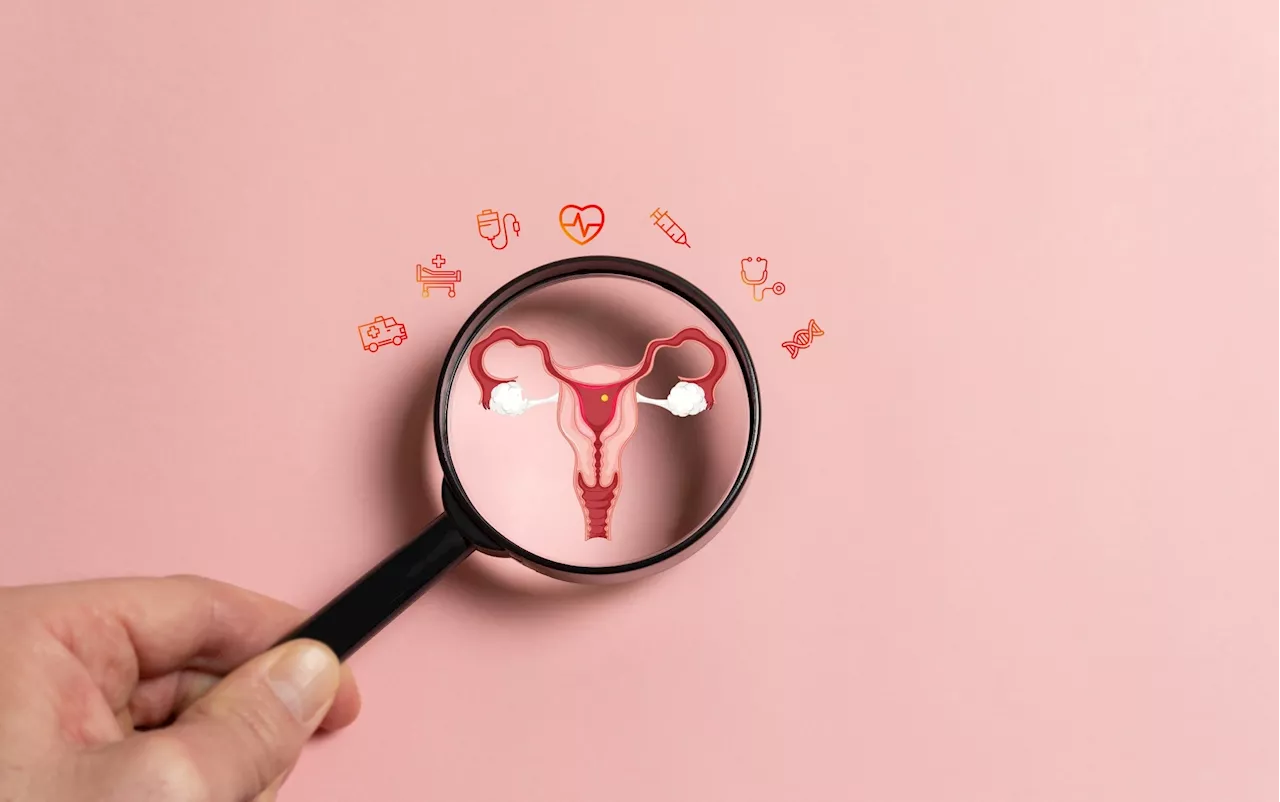The NHS highlights the importance of early detection for ovarian cancer, emphasizing that survival rates drop significantly when diagnosed at later stages. Common early signs include bloating, feeling full quickly when eating, abdominal pain, and changes in menstrual cycles. The article urges individuals to consult a doctor promptly if they experience any of these symptoms.
The chances of surviving cancer are significantly reduced if it's not detected early. The NHS has compiled a list of symptoms that could act as early warning signs, including one that may appear during or shortly after eating, particularly in women.
The NHS points out that there's a significant overlap between some symptoms of ovarian cancer, irritable bowel syndrome , and premenstrual syndrome . Key early signs of ovarian cancer include a swollen abdomen or persistent bloating, feeling full quickly while eating, and experiencing pain or discomfort in the abdominal area or between the hips.
Common early signs of ovarian cancer include less frequent periods, heavier bleeding, irregular bleeding or postmenopausal bleeding. It's crucial to see a doctor if you notice any worrying signs, as ovarian cancer can be difficult to detect early due to its vague symptoms. The chances of developing this cancer increase with age, and it mainly affects women who have gone through menopause. If caught early, the survival rate is an impressive 95%, which is more than double the usual survival rate.
Ovarian Cancer Early Detection Symptoms Health Warning NHS
United Kingdom Latest News, United Kingdom Headlines
Similar News:You can also read news stories similar to this one that we have collected from other news sources.
 Janey Godley begins 'final tour' before funeralThe Glaswegian died on 2 November aged 63 after living for several years with ovarian cancer.
Janey Godley begins 'final tour' before funeralThe Glaswegian died on 2 November aged 63 after living for several years with ovarian cancer.
Read more »
 Northern Ireland Woman Raising Funds for Ovarian Cancer AwarenessJenny Maginn, diagnosed with ovarian cancer twice, is seeking to raise funds for an awareness campaign about the symptoms of ovarian cancer. She has undergone multiple treatments and remains optimistic despite the cancer's recurrence in 2024.
Northern Ireland Woman Raising Funds for Ovarian Cancer AwarenessJenny Maginn, diagnosed with ovarian cancer twice, is seeking to raise funds for an awareness campaign about the symptoms of ovarian cancer. She has undergone multiple treatments and remains optimistic despite the cancer's recurrence in 2024.
Read more »
 MRI-based imaging technique predicts the response of ovarian cancer to treatmentAn MRI-based imaging technique developed at the University of Cambridge predicts the response of ovarian cancer tumors to treatment, and rapidly reveals how well treatment is working, in patient-derived cell models.
MRI-based imaging technique predicts the response of ovarian cancer to treatmentAn MRI-based imaging technique developed at the University of Cambridge predicts the response of ovarian cancer tumors to treatment, and rapidly reveals how well treatment is working, in patient-derived cell models.
Read more »
 Metabolic imaging detects ovarian cancer subtypes and predicts chemotherapy responseStudy demonstrates how metabolic imaging differentiates high and low oxidative phosphorylation (OXPHOS) subtypes of high-grade serous ovarian cancer (HGSOC). By assessing metabolic activity, it also identifies early and variable responses to chemotherapy, improving precision in treatment strategies.
Metabolic imaging detects ovarian cancer subtypes and predicts chemotherapy responseStudy demonstrates how metabolic imaging differentiates high and low oxidative phosphorylation (OXPHOS) subtypes of high-grade serous ovarian cancer (HGSOC). By assessing metabolic activity, it also identifies early and variable responses to chemotherapy, improving precision in treatment strategies.
Read more »
 'They said I was too young for rare cancer - now it's going to kill me'Sophie Casey has diagnosed with stage 4B Ovarian cancer
'They said I was too young for rare cancer - now it's going to kill me'Sophie Casey has diagnosed with stage 4B Ovarian cancer
Read more »
 Global study reveals shifting trends in ovarian cancer incidence by subtype and regionStudy analyzed global patterns and trends in ovarian cancer incidence from 1988 to 2017, highlighting variations by histological subtypes and regions. It revealed significant geographic disparities, with higher rates in regions with very high HDIs and emphasized the need for targeted prevention and surveillance strategies.
Global study reveals shifting trends in ovarian cancer incidence by subtype and regionStudy analyzed global patterns and trends in ovarian cancer incidence from 1988 to 2017, highlighting variations by histological subtypes and regions. It revealed significant geographic disparities, with higher rates in regions with very high HDIs and emphasized the need for targeted prevention and surveillance strategies.
Read more »
